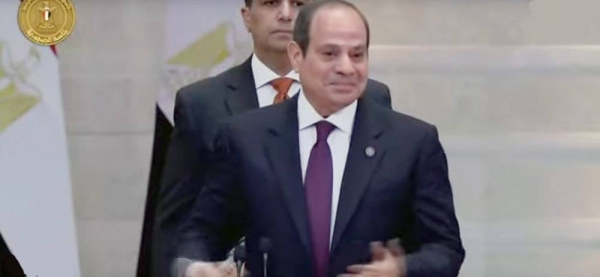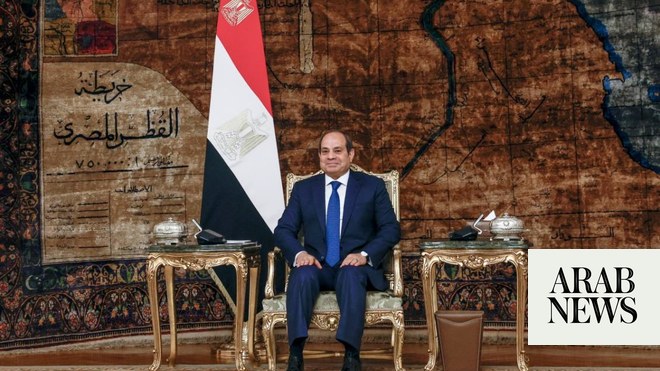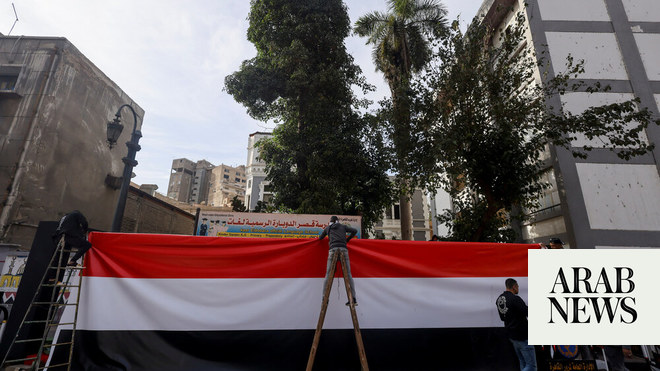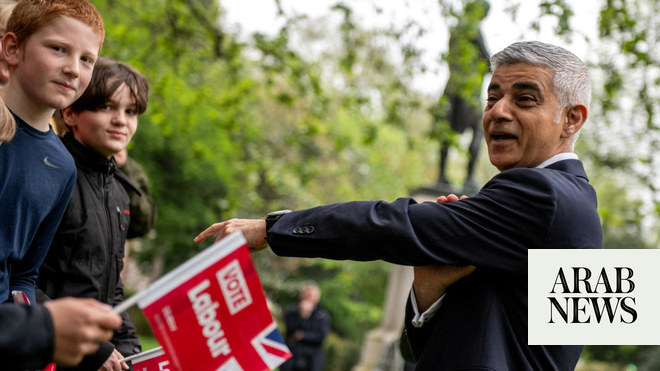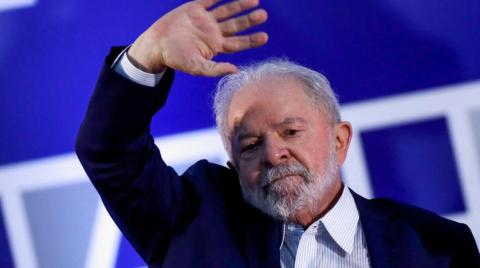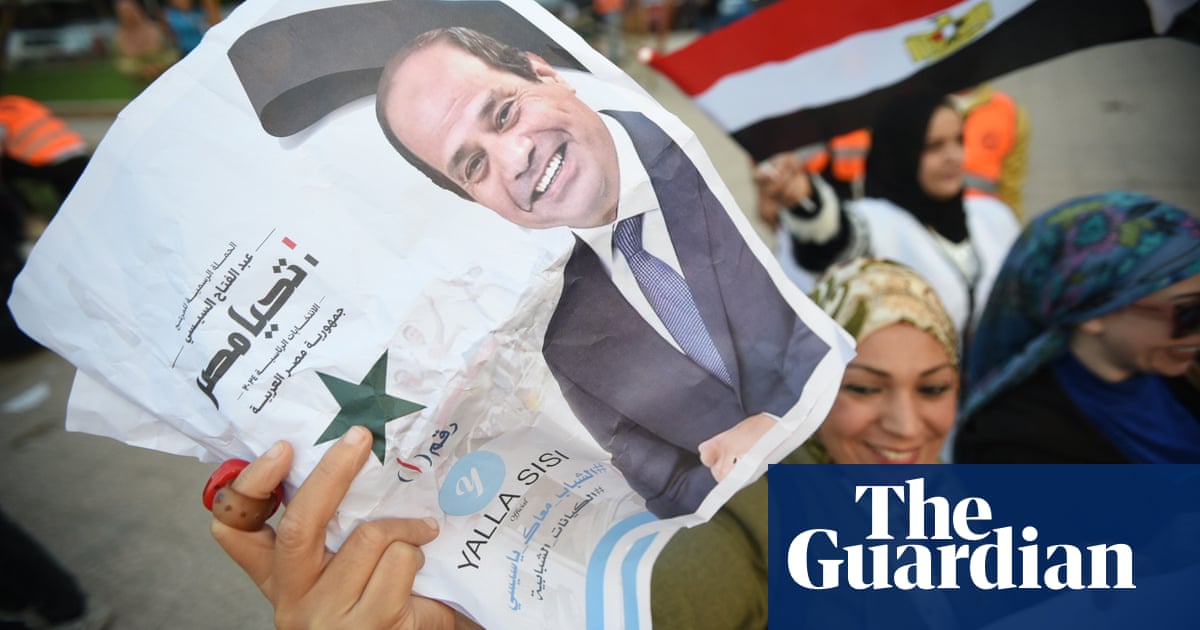
The president of Egypt, Abdel Fattah al-Sisi, was voted in for a third term on Monday after an election where he faced no serious challengers, calling the vote a rejection of the “inhumane war” in neighbouring Gaza.
The president was able to claim the top job after Egypt’s constitution was amended in 2019, extending the presidential term to six years from four, and allowing Sisi to stand for a third term.
The election, in which he took 89.6% of the vote, according to the National Election Authority, was held as Egypt struggles with a slow-burning economic crisis and tries to manage the risk of spillover from the Israel-Gaza war adjacent to Egypt’s Sinai Peninsula.
Many people in the Arab world’s most populous country expressed indifference about the 10-12 December election, saying the result was a foregone conclusion.
Some voters said the Israel-Gaza conflict had encouraged them to vote for Sisi, who has described the war as Egypt’s primary challenge.
“Egyptians lined up to vote not just to choose their president for the next term but to express their rejection of this inhumane war to the entire world,” Sisi said in a speech after results were announced.
The election featured three other candidates, none of them high profile. The most prominent potential challenger halted his run in October, saying officials and thugs had targeted his supporters – accusations dismissed by the election authority.
“There were no elections, Sisi used the entire state apparatus and security agencies to prevent any serious contender from even running,” said Hossam Bahgat, head of the Egyptian Initiative for Personal Rights (EIPR), an independent group.
Reuters reporters witnessed voters being bussed into polling stations and bags of food being handed out, while some said they were put pressure on by employers to cast a ballot.
Egypt’s state media body said the vote was a step towards political pluralism and authorities have denied violations of electoral rules.
Sisi, a former general, was elected to the presidency in 2014, and re-elected in 2018, both times with 97% of the vote.
Some admire an infrastructure drive including a new capital built from scratch in the desert east of Cairo, which Sisi has said marks the launch of a “new republic”. Others see the city as a costly extravagance. Rapid inflation, a chronic foreign currency shortage, and a rising debt burden have led to growing criticism of economic policy.
“I renew my pact with you, to together exert every effort to continue building the new republic, that we hope to erect according to a shared vision,” Sisi said in a taped speech aired on state television with little fanfare.
While economic decisions including a possible currency devaluation could follow the vote, Egypt’s governing structure that has a dominant military was unlikely to change, with repression of dissent a “huge deterrent” against unrest, said Michael Hanna, US program director at Crisis Group.
“They’ve sort of stuck to their guns on how they’ve run the country and they seem impervious to the results of their governance approach,” he said.




